For decades, your professional identity may have been wrapped in titles, responsibilities, and achievements. The corner office. The strategic wins. The recognition at annual meetings. But when that chapter ends, you’re left with an open question: Who am I now, and what’s next?
Too often, society hands us a flat, outdated script: retire, relax, play golf, fade into the background. But high achievers like you know that story doesn’t fit. You didn’t spend a lifetime solving complex problems and leading others just to retreat into irrelevance.
The truth is this: retirement isn’t a finish line. It’s a doorway. The encore stage of life, your next 20, 30, even 40 years can be your most intentional, meaningful, and creative season yet. But to walk through that doorway with confidence, you’ll need a new set of rules.
Here are 10 rules for navigating your encore life. Each is an invitation, a challenge, and a permission slip to step boldly into reinvention.
1. Your identity isn’t your former title.
For years, your title answered the question: What do you do? But now the real question is: Who are you becoming? This stage of life is about expanding your identity, not shrinking it. You are more than a résumé. Your leadership, wisdom, and lived experiences are assets that don’t expire.
2. Your next 30 years deserve intention.
You spent decades planning careers, strategies, and investments. Why not approach the next 30 years with the same level of care? Without intention, it’s easy to drift. With intention, you create a chapter that is aligned with your values, your purpose, and your joy.
3. Starting over isn’t failure, it’s evolution.
Too many people fear the blank page. They tell themselves they’re “too old” to begin again. But starting over isn’t about erasing your past, it’s about building on it. Think of it as upgrading, not downgrading. Evolution is proof of courage.
4. Community beats isolation every time.
When you leave corporate life, you also leave an ecosystem of relationships. The danger? Isolation. The opportunity? Rebuilding a community that energizes you. Surround yourself with fellow pioneers who are navigating similar transitions. Iron sharpens iron.
5. The messy middle of transition is normal.
Between the career you left behind and the future you’re creating, there will be an in-between space. It’s disorienting, even uncomfortable. But it’s also fertile ground. The messy middle is where reinvention takes root. Don’t rush through it, use it.
6. Small experiments lead to big discoveries.
You don’t need a perfect five-year plan. You need small steps. Try a project, launch a pilot, write a draft, test an idea. Each experiment is a data point, not a verdict. Momentum comes from motion, not perfection.
7. Your experience has value in new markets.
The marketplace may not be looking for your old title, but it is looking for your skills, insights, and wisdom. Think beyond the narrow lane of your past industry. Your value may lie in advising, mentoring, creating, or teaching in spaces you’ve never considered.
8. Financial planning includes purpose planning.
Yes, you need to know your numbers. But spreadsheets won’t give you meaning. Financial security without a sense of purpose still leads to emptiness. Plan for impact, joy, and contribution alongside dollars and cents.
9. Tech skills can be learned, no matter your age.
You are not “too old” for technology. In fact, today’s tools give you leverage you’ve never had before. Whether it’s AI, digital marketing, or online business platforms, you can learn what you need, quickly. Don’t let fear of tech keep you small.
10. Learning new skills at 60+ is courage, not desperation.
When you sign up for a course, join a mastermind, or embrace new tools, you’re not scrambling to stay relevant, you’re demonstrating courage. Reinvention is not about clinging to the past; it’s about leaning into the future. Every new skill is a signal: I’m not done yet.
The Invitation
The encore stage of life isn’t about winding down—it’s about reinventing. These 10 rules aren’t meant to overwhelm you. They’re meant to anchor you. They give you a framework to move forward with clarity and confidence.
The question is: Which rule do you need to embrace today?
Maybe it’s giving yourself permission to step outside the shadow of your old title. Maybe it’s reconnecting with a community of peers. Maybe it’s finally leaning into the messy middle instead of trying to escape it.
Whatever it is, remember this: you’re not retiring. You’re pioneering.
A Final Word
When I work with clients navigating this transition, one truth stands out again and again: the people who thrive aren’t the ones who have all the answers. They’re the ones who are willing to experiment, to learn, to connect, and to embrace the identity of “pioneer.”
Your encore life can be a season of purpose, impact, and freedom. But only if you claim it.
So—what’s your next step?
And if you’re ready for more personal support, I invite you to try Lynn AI—your free, private guide to navigating change and clarifying your next steps.
Explore Lynn AI here: lynnfriesth.com/lynn-ai




















